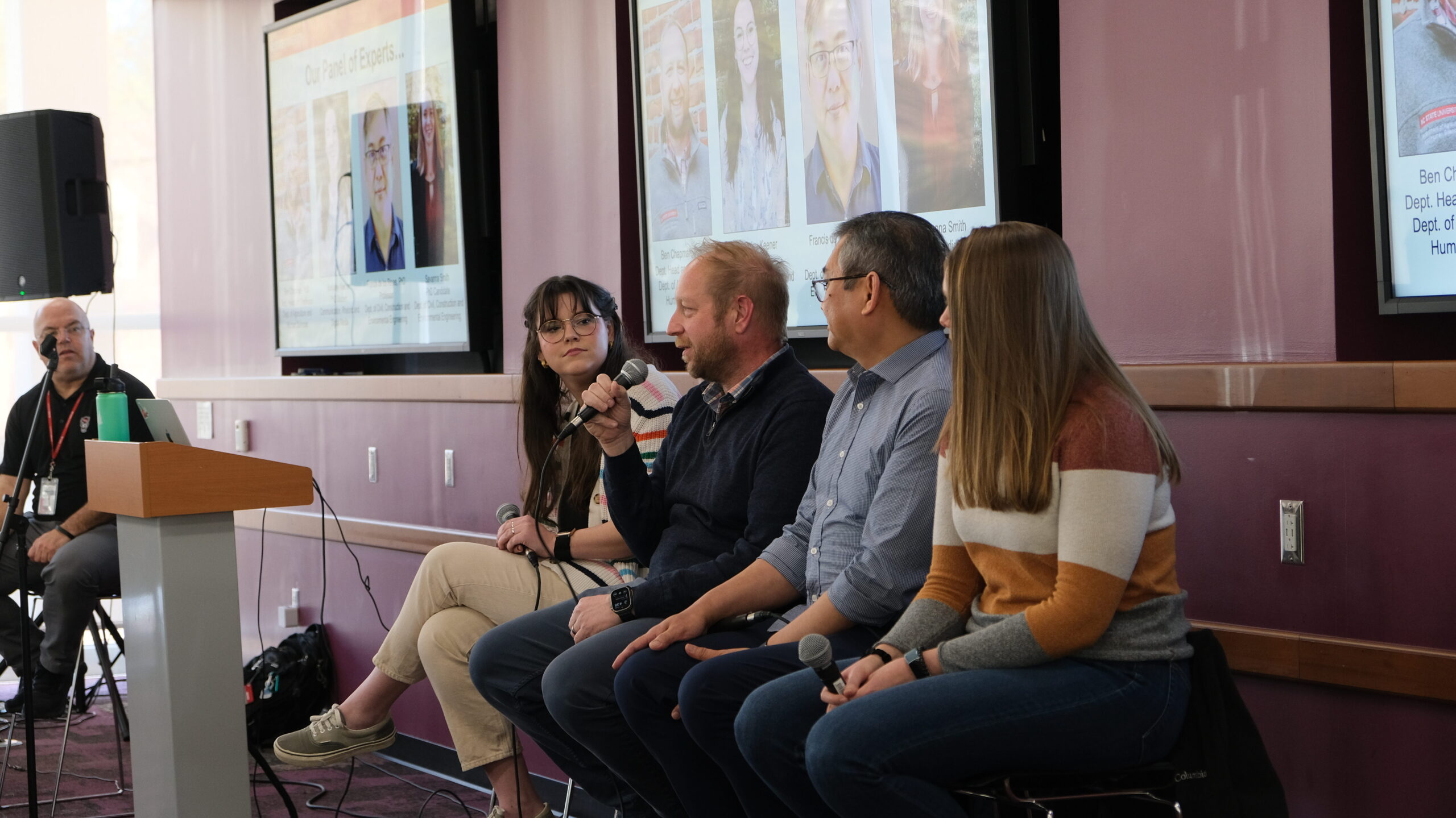(Y)Our Health in the Movies: Food & Water

On Tuesday, March 19, the Global One Health Academy in collaboration with the Wicked Problems, Wolfpack Solutions, and the NC State Libraries hosted their final (Y)Our Health in the Movies event of the semester focused on Food and Water.
Can Matt Damon really grow potatoes on Mars? Unfortunately not in our reality, but certainly in 2015 film, The Martian. Damon plays a NASA astronaut named Mark Watney who gets stranded on Mars and relies on his botany expertise to help him survive. Using human feces as fertilizer and combining hydrogen and oxygen to create water, Mark successfully plants and harvests potatoes on Mars. While using your own feces as fertilizer may not seem the most appetizing, our expert panel confirmed that this practice is actually viable and safe as long as you are the one eating the crops. However, combining your feces with those of your peers, as depicted in The Martian, could result in illness and disease.
The Martian is just one of the films featured during the (Y)Our Health in the Movies event last week. Additional clips were shared from Interstellar, Airplane, Hot Tub Time Machine, Slumdog Millionaire, and Waterworld. Experts in film studies, food, water, sanitation, and hygiene, provided insight into the real-world implications of the events portrayed in the films. For example, creative license was applied in Hot Tub Time Machine where John Cusack’s character shares that 33 people died of E.coli after dining at the “The Enchanted Forest of Pizza.” Expert panelist, Ben Chapman assured the audience that a 33 person death at one restaurant is extremely unlikely and would be indicative a catastrophic outbreak.

While watching a child plunge himself into a pool of urine and feces may not be on your top ten watch list, this Slumdog Millionaire scene highlighted something much more important: the use of a standing latrine. Expert panelist Francis de los Reyes expressed how we often take our indoor plumbing and sanitation system for granted. Low-middle income regions across the world do not have this luxury and instead rely on outhouses or open defecation. Even in regions where indoor plumbing exists, such as the United States, waste water is sometimes dumped straight into the environment causing many health hazards.
Food, water, sanitation, and hygiene are all interconnected. Clean water promotes healthy crops and therefore a healthy human population. With emerging technologies in sanitation and hygiene we won’t have to worry about a reality like Waterworld where clean water has become obsolete. However, similar to the film, we too have the technology to convert wastewater into clean drinking water, although the process is more sophisticated than the make-shift urine filtration system depicted in the film.
One of the “wicked” problems that we face as a growing human population is sustainable food and water production along with effective sanitation. This event allowed experts to share the science behind the depictions of food and water issues in popular films, while also offering valuable insight into recent innovations that will promote a secure future of food and water. A special thank you goes out to our expert panel for leading such an informative and engaging event: Ben Chapman (Agricultural and Human Sciences), McKinley Keener (Communication, Rhetoric and Digital Media), Francis de los Reyes (Civil, Construction, and Environmental Engineering), and Savanna Smith (Civil, Construction, and Environmental Engineering).
If you enjoyed this series and want more, stay tuned for more engaging One Health related events next semester!
- Categories: